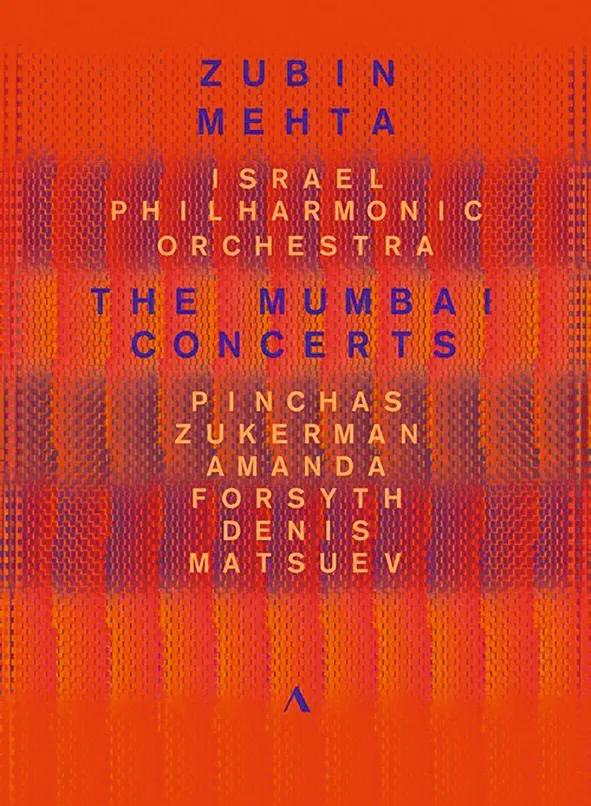
The Mumbai Concerts Beethoven: Violin Concerto; Brahms: Double Concerto; Dvořák: Carnival Overture; Ravel: La Valse; Daphnis et Chloé – Suite No. 2; J Strauss II: Die Fledermaus Overture; Tchaikovsky: Piano Concerto No. 1 Pinchas Zukerman (violin), Amanda Forsyth (cello), Denis Matsuev (piano); Israel Philharmonic Orchestra/Zubin Mehta Accentus Music ACC20383 199:23 mins (2 discs, DVD)
Zubin Mehta returned to his birthplace for these two 80th-birthday concerts in Mumbai’s National Centre for the Performing Arts – a super-sumptuous modern auditorium, with an acoustic that’s comfortably warm while allowing an amazing amount of detail to come across. Mehta is ageing in fine style: the control and precision of his conducting remain phenomenal, yet there is none of the sports car gear-changing which, in earlier vintages, he often seemed unable to resist.
Each concert has a short opener: Dvořák’s Carnival and Johann Strauss’s Die Fledermaus overture. The first concert continues with Beethoven’s Violin Concerto, played by Zukerman with a gloss-free mastery as immense as it is unfussy, graced with a principal bassoonist (so important in this work) of near-fabulous musicianship. Mehta allows himself a moment of showboating when, in the finale, he does a kind of reverse turn from the first violins on his left to the seconds on his right by way of facing the audience; it takes a while for Zukerman to stop grinning irrepressibly. In an all-Ravel second half, the orchestra’s stellar delivery of Daphnis et Chloé Suite No. 2 has Mehta conjuring a beautifully sensitive accompaniment to the flute’s big solo. The encore, the Swan Lake waltz, is so excitingly played that if you were dancing to this, you’d surely end up getting airborne. The second concert doesn’t hit such heights. Zukerman is joined by Amanda Forsyth in Brahms’s Double Concerto, which comes across as rather too hectoring and turbocharged. Denis Matsuev’s vast virtuosity scintillates in Tchaikovsky’s First Piano Concerto, but his improvised encore, an amazing feat in itself, reduces proceedings to something of a circus. His and the orchestra’s rendition of ‘Happy Birthday’ to Mehta would have done nicely by itself.
Malcolm Hayes